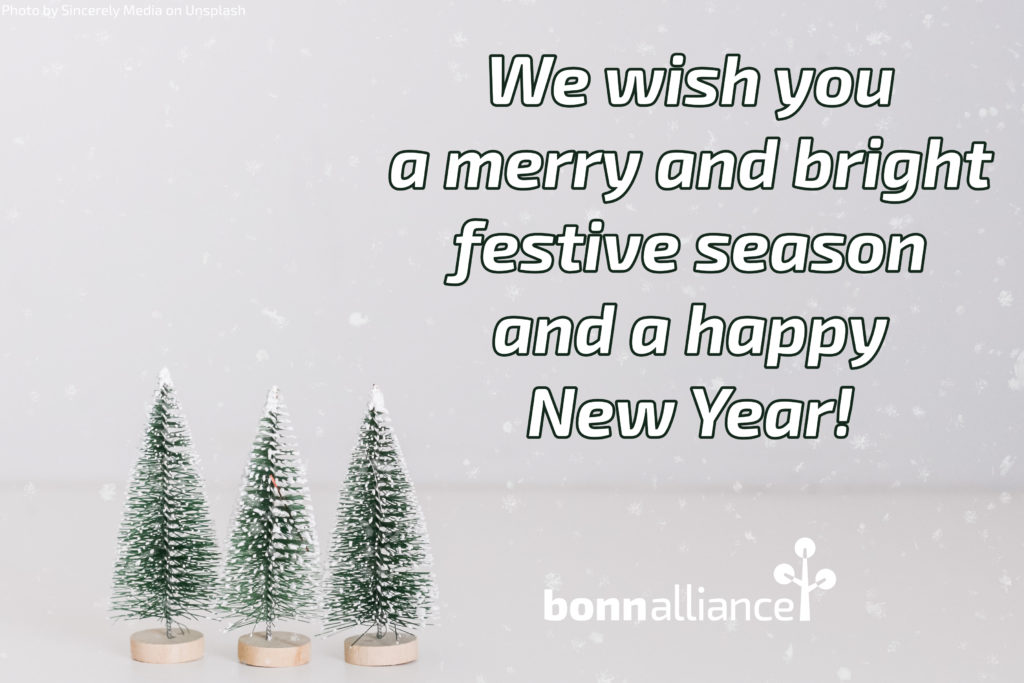
The year 2021 is coming to an end and we would like to take this moment to look back on special successes and highlights.
Our spring 2021 was all about digitalization: on February 23, 2021, the digitainable team successfully organized the virtual “digitainable forum: Mindful use of Digitalization and Artificial Intelligence (D&AI) for the SDGs” with about 40 participants from different countries.
In June, our new program line “Sustainability – Looking beyond 2030” (S-LB2030) started together with the Bonn community with the workshop “Revisiting Sustainability: Challenges for Science and Policy”. The workshop was jointly organized and conducted with the WiSE (Wellbeing, Sustainability, Equity Transformation Initiative) team of UNU-EHS. Further synergies of collaboration have emerged following the workshop with the new working group “Alternative Sustainabilities” (University of Bonn/ TRA6).
For thematic deepening of the new working group, we conducted a research mapping on “Alternative Sustainabilities” in our community. In addition, we further discussed the critique of Eurocentrism in relevant sustainability frameworks with Professor Ajei, SDG Fellow at the University of Bonn: his presentation “Conceptual barriers in the current global sustainability discourse. Perspectives from African philosophy” invited colleagues from the Bonn Alliance and other interested parties to a stimulating discussion. As discussants, Professor Müller-Mahn and Professor Großmann (both University of Bonn) integrated central aspects of the lecture into ongoing discussions on sustainability in our circles.
The panel discussion “Transform to Survive: A Sustainable Future for All?” held in Bonn on the occasion of the UN’s 25th anniversary brought together leaders from research, government and the UN who outlined the framework for sustainable science-policy collaboration in and from Bonn. In terms of a “post-2030” perspective, they advocated for a collaboration that can be sustainable for a new culture of knowledge and sustainability. In the storytelling event “Listen to science made in Bonn”, colleagues from the Bonn Alliance reported on their work with and for the United Nations.
A new introduction video to the program line S-LB2030 is available on our YouTube channel.
The project “Bioeconomy in North Rhine-Westphalia: A Study on the Reorientation of the NRW Bioeconomy Strategy”, funded by the Ministry for Environment, Agriculture, Conservation and Consumer Protection of the State of North Rhine-Westphalia (MULNV) and conducted under the leadership of ZEF, has been successfully completed this year; the results of the study can be found in the final report. For next year, more exciting activities and projects are coming up – interested students and young scientists can already apply for the digitainable Spring School: “Towards Sustainability with Digitalization and Artificial Intelligence” (March 4-11, 2022).
We wish you festive holidays and a happy New Year 2022!